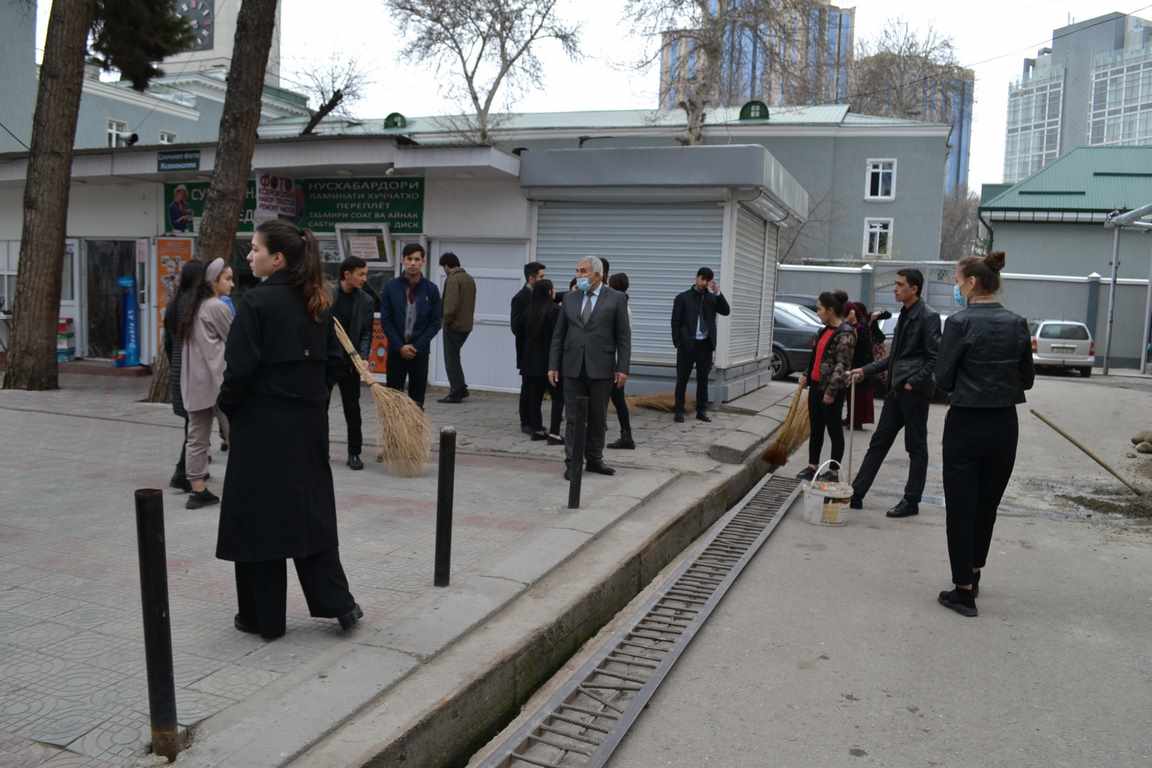Turdieva Mahina, assistant of department of foreign
language and humanitarian sciences
Terrorism is defined in the Oxford Dictionary as “the unlawful use of violence and intimidation, especially against civilians, in the pursuit of political aims.” We quickly see that this definition is unspecific and subjective. The issue of subjectivity in this case means that there is no internationally recognised legal definition of terrorism. Despite considerable discussion, the formation of a comprehensive convention against international terrorism by the United Nations has always been impeded by the lack of consensus on a definition.
Islam recognizes the value of human life and the concepts of justice, hospitality, kindness, honor, as well as love for parents, devotion to the ideas of Islam, readiness to help, are developed at the genetic level. The concepts of religious intolerance are alien to them.
Terrorism is a major problem all over the world at the moment. It affects a country’s economy. Terrorists were made in the name of religion. Religion never teaches terrorism or tell followers to take the lives of other people. But the wrong leaders teach wrong things and innocent people fall prey to this.
Here we can bring examples of speech of the Founder of Peace and National Unity, Leader of the Nation, President of the Republic of Tajikistan Emomali Rahmon at the opening ceremony of the high-level international conference on ” Countering Terrorism and Violent Extremism” in 2018.
“Today, terrorist and extremist groups have teamed up with religious, national-national organizations, and other criminal organizations, and in various regions of the world have incited violence, bloodshed, religious and religious, racial, and even civilizational clashes. In this context, it also raises deep concern that terrorists and extremists, by abusing the pure in the name of the religion of Islam, contribute to the spread of the authority and hatred of Muslims. Thus, discrediting the religion of Islam, which today accounts for more than half a million of the world’s population and makes a significant contribution to the development of the civilized world, can lead to the consequences of mistakes.
In addition, to prevent the bites of Islam, we need to expand the space of trust, tolerance and mutual understanding between society and civilizations, which, in turn, will further expand our capabilities to counter modern challenges and threats”.
The key problem is that terrorism is difficult to distinguish from other forms of political violence and violent crime, such as state-based armed conflict, non-state conflict, one-sided violence, hate crime, and homicide. The lines between these different forms of violence are often blurry. Here, we take a look at standard criteria of what constitutes terrorism, as well as how it might be distinguished from other forms of violence.
Violent actions are usually categorised according to the perpetrator, the victim, the method, and the purpose. Different definitions emphasise different characteristics, depending on the priorities of the agency involved.
In our coverage of terrorism, we rely strongly on data from the Global Terrorism Database (GTD), which defines terrorism as “acts of violence by non-state actors, perpetrated against civilian populations, intended to cause fear, in order to achieve a political objective.” Its definition excludes violence initiated by governments (state terrorism) and open combat between opposing armed forces, even if they’re non-state actors.
To be considered an act of terrorism, an action must be violent, or threaten violence. As such, political dissent, activism, and nonviolent resistance do not constitute terrorism. There are, however, many instances around the world of authorities restricting individuals’ freedom of expression under the pretext of counter-terrorism measures. Human rights groups, such as Amnesty International and Human Rights Watch, publish reports on such cases of censorship.
The inclusion of damage to private and public property in the definition of terrorism is a point of contention, but it is generally accepted in legal and statistical contexts.
Terrorist actions must be also conducted either by an organization with an identifiable chain of command or conspiratorial cell structure (whose members wear no uniform or identifying insignia), or by individuals or a small collection of individuals directly influenced by the logical aims or example of some existent terrorist movement and its leaders (typically referred to as a ‘lone wolf’ attack).
Finally, we must bring up our students, youth in right way. And the task of the older generation is to help the youth to determine their worthy place in this complex world, to realize themselves as much as possible, because in their hands the future of our country – and everyone wants these hands to be strong and reliable!
Аннотация
Терроризм определяется в Оксфордском словаре как «незаконное использование насилия и запугивания, особенно в отношении гражданского населения, для достижения политических целей».
Несмотря на широкие дискуссии, разработке всеобъемлющей конвенции о борьбе с международным терроризмом Организацией Объединенных Наций всегда препятствовало отсутствие консенсуса по определению.
Ислам признает ценность человеческой жизни, и концепции справедливости, гостеприимства, доброты, чести, а также любви к родителям, преданность идеям ислама, готовность помочь развиваются на генетическом уровне. Им чужды понятия религиозной нетерпимости.
В настоящее время терроризм – серьезная проблема во всем мире. Это влияет на экономику страны. Террористы созданы во имя религии. Религия никогда не учит терроризму и не призывает последователей убивать других. Но неправильные лидеры учат неправильным вещам, и жертвами этого становятся невинные люди.
Здесь можно привести примеры выступления Основателя мира и национального единства, Лидера нации, Президента Республики Таджикистан Эмомали Рахмона на церемонии открытия международной конференции высокого уровня «Противодействие терроризму и насильственному экстремизму» в 2018 г.
«Сегодня террористические и экстремистские группы объединились с религиозными, национально-национальными организациями и другими преступными организациями и в различных регионах мира подстрекают к насилию, кровопролитию, религиозным и религиозным, расовым и даже цивилизационным столкновениям. В этом контексте это также вызывает глубокую озабоченность тем, что террористы и экстремисты, злоупотребляя чистыми во имя религии ислама, способствуют распространению власти и ненависти к мусульманам. Таким образом, дискредитация религии ислама, которая сегодня составляет более полумиллиона населения мира и вносит значительный вклад в развитие цивилизованного мира, может привести к последствиям ошибок.



